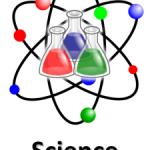Most people will never become scientists. Most people will never need to know how many protons are in an atom of Neon or what the atmosphere of Venus is made of. Unlike English, which is everywhere, and math, which is a fact of life, science is a specialized skill useful to only a small percentage of us.
So why study science?
The fact is, the material you learn in a typical science class isn’t physics or biology. I mean, you do learn that stuff (at least I hope so), but that’s not necessarily what science class is for. In science, you learn certain analytical skills which a math class can’t cover. Math teaches logical skills, or how to get from A to B when A and B have already been given. Science teaches analytical skills, or how to construct an argument in the real world where questions and answers aren’t always so clear.
Fundamentally, science class teaches how to look at a sea of chaotic information and make something coherent of it. Today, you watch a ball roll down an incline 20 times with 20 slightly different results, and from those results, you create a hypothesis and a useful data set. Tomorrow, you are figuring out how many widgets your company should buy based on 20 different past experiences.
The “science” section of the ACT test is a more distilled version of what science class tries to teach. For the ACT, you don’t actually need any outside knowledge about science. What you need is a deep understanding of analytical thinking, including the ability to read and produce charts and graphs. If somebody hands you a collection of data about, say, owl mating patterns in the American Northwest, you should be able to understand the information, find potential flaws in the information, and make some basic predictions.
The scenario in which you’re handed a random collection of data is less far-fetched than it sounds. Maybe more than any other time in history, the world demands that we all be able to process large amounts of data. Buying a hamburger means considering calorie count, environmental impact, and workers’ rights, not to mention the price. Experts make graphs out of everything, from politics[1] to sports[2]to pop music[3]. Everybody has constant easy access to up-to-the-minute stock quotes, on-demand weather reports, and breaking news. This information can be a boon if it’s used correctly, but it’s also easy to get lost in the sheer immensity of it.
Of course, as important as these abstract skills are, the actual information you learn in science class is useful too. This is an exciting time for science. Fundamental laws of physics are being questioned. Rovers are making miraculous landings on Mars. Cures for major diseases could be right around the corner. And almost every professional field now has some scientific component. In politics and law, issues like global warming and healthcare technologies are pressing. In business, tech companies are king. In the arts, more and more artists are blurring the line between science and creativity.
Science is becoming more and more important in the 21st century. But even if you know that you’ll never be a scientist (as I did in high school), the skills attached to science continue to be indispensable. The best professionals, citizens, and consumers of our lifetimes will be the best analytical thinkers.







